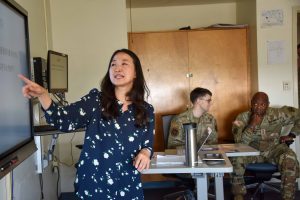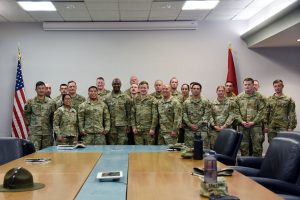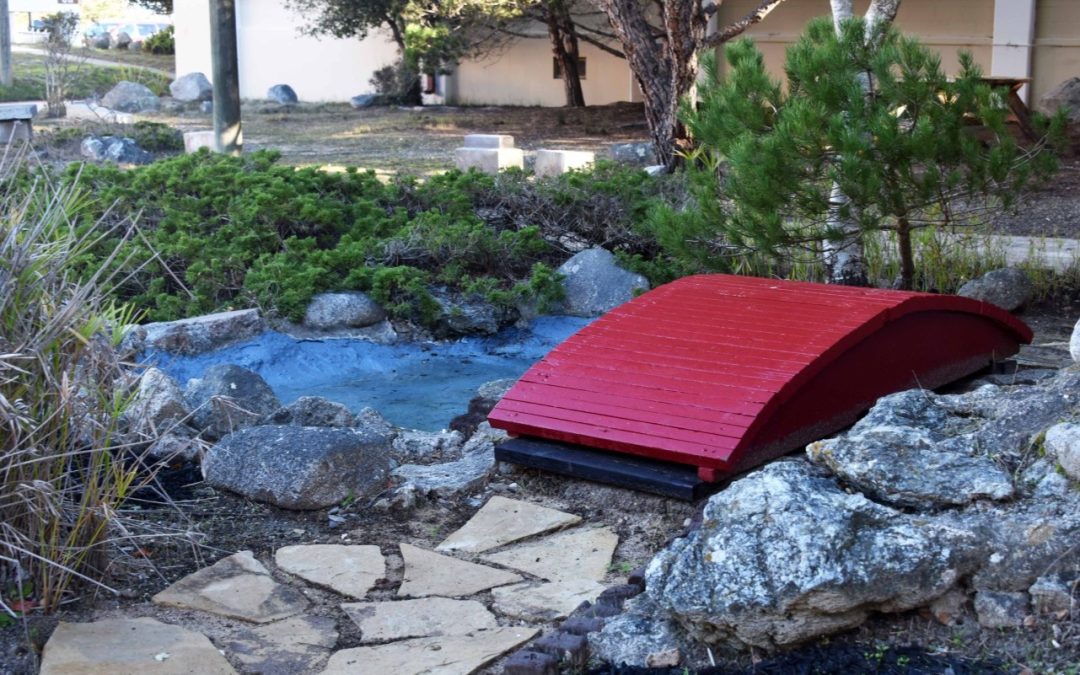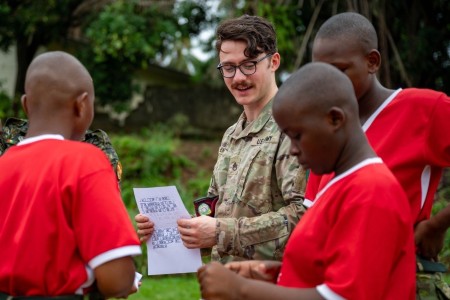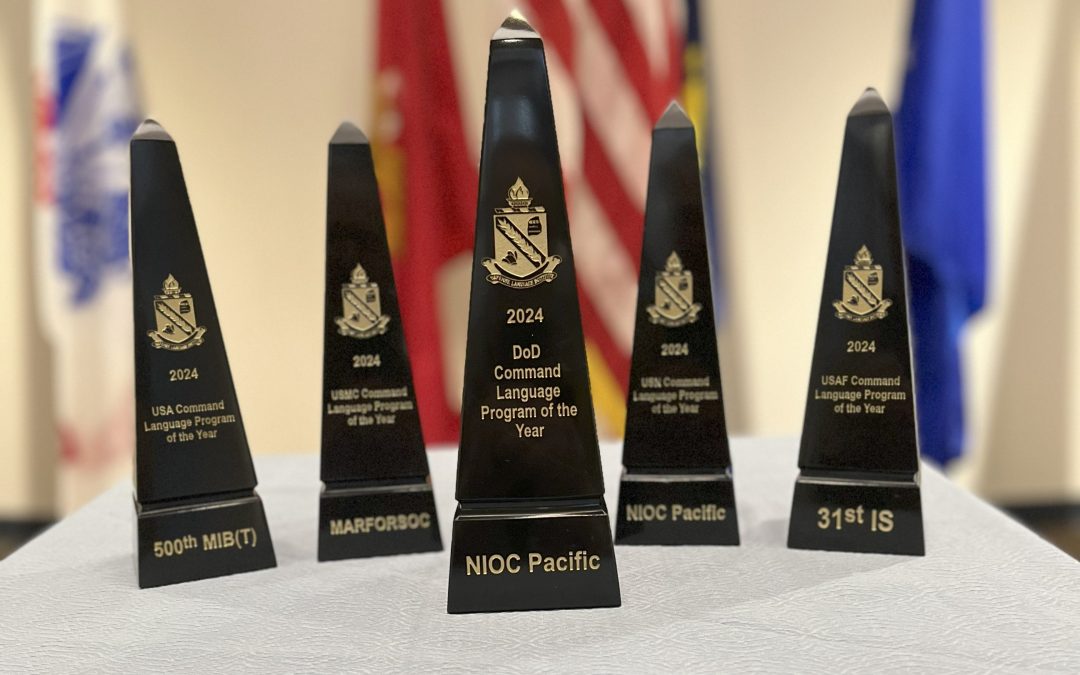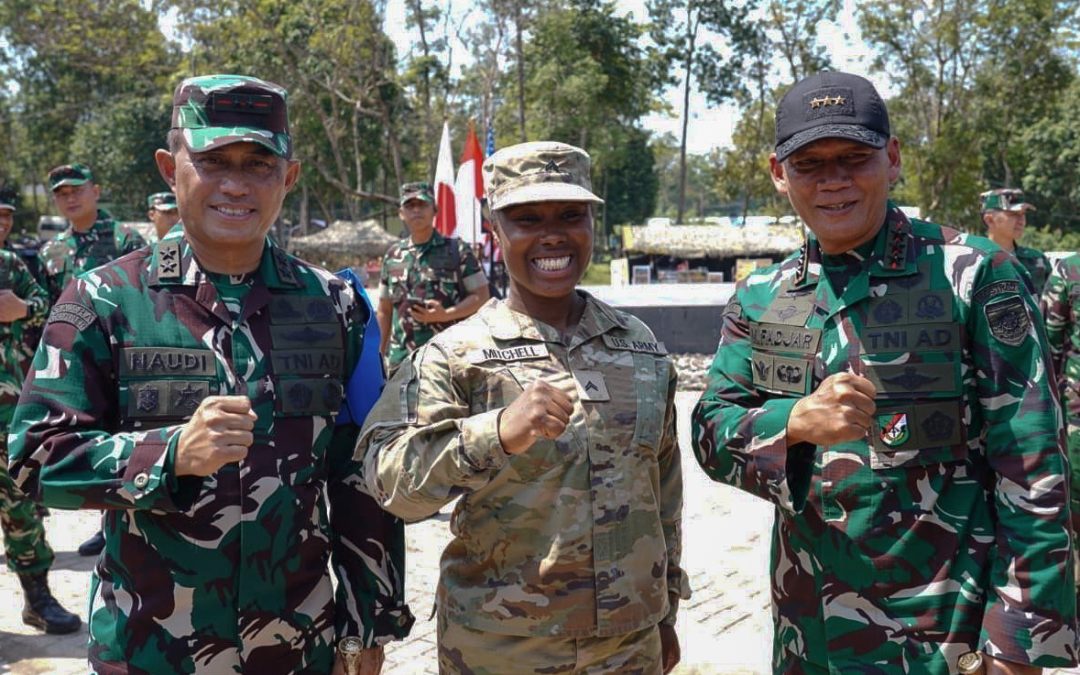The Commanding General of the U.S. Army Combined Arms Center and Fort Leavenworth, Kansas, Lt. Gen. Milford Beagle, visited the Defense Language Institute Foreign Language Center and Presidio of Monterey for the first time July 17.
Beagle observed two Korean language classes and spoke with military leadership and cadre about the foreign language mission. After visiting a first and third semester class, Beagle was impressed with student fluency, stating that he was stationed in Korea twice and had a good sense for how complicated it is to learn.
“Having spent time in Korea, and having watched the Korean language class, I was very impressed. When we go to other countries or other nations… we learn enough to be useful but not helpful…What they are learning will be helpful not only for their unit, but for the larger enterprise in the Army in terms of what they bring to the table…,” said Beagle.
Beagle was stationed twice in Korea, once in 2000 and then again from 2008 to 2010. On both occasions he had the opportunity to learn some Korean and interact with his counterparts.
“The importance of having those linguists in our formations [is useful] for two primary reasons; helping us understand our adversaries, and then helping us build partners and partner capacity because that is the conduit with which we can do that,” he said.
DLIFLC courses last between 36 and 64 weeks. The Korean course is 64 weeks long, nearly 15 months. Instruction takes place five days a week, six to seven hours per day, with two to three hours of homework each evening. For the military, it is one of the longest training pipelines.
“Even when we speak the same language there is a lot that can be lost in translation, but … when you are not in your own environment and you have someone that can fill that void, … you don’t [have to] lose anything. That literally means a lot and shows the importance of having the language training and skillsets here, in order to impart that on our students,” he explained.
When asked what advice he would give students in their future careers, Beagle said, “Whether they are staying in the military or leaving, it is all about repetition. It is not just meeting the standard but exceeding it … repetition breeds confidence and confidence breeds competence, and competence breeds mastery – so they see that cycle here,” here said.
Beagle heads CAC under the Army Training and Doctrine Command. The organization is the Army’s lead for lessons learned, doctrine, training, education, functional training, fielded force integration, and manages the Army Leader Development Program, Army Profession Program, and Army Training and Education Management Enterprise, among others.
Following his visit to DLIFLC, Beagle visited the University of Southern California Institute for Creative Technologies to discuss the Department of Defense’s efforts with AI, virtual gaming and training space.

